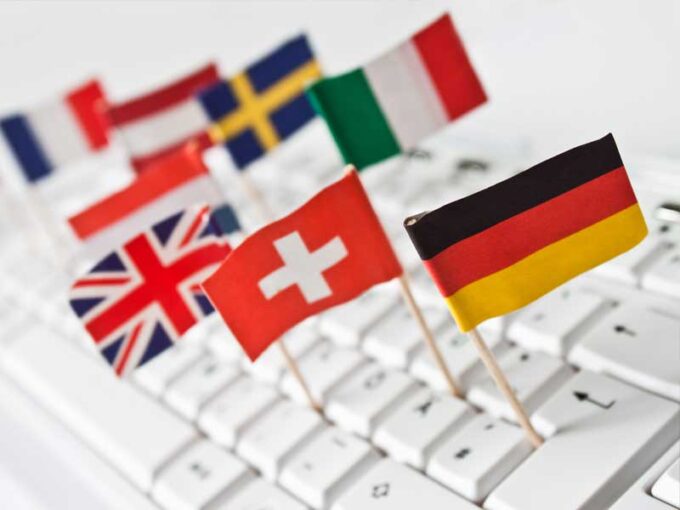Last year was perhaps one of the most unpredictable years in the corporate sector in a very, very long time. This is especially true for organisations based in the United Kingdom. Brexit coupled with the world-wide pandemic forced business owners across practically all corporate sectors to re-think their expansion plans and adjust the way they conduct their everyday business.
Especially Covid-19 was an economy shaping curveball, across practically all business industries. The pandemic changed not only the global economy as a whole, but also affected people on a more personal level – from altering the way we work to a dramatic fall in, for example, international trade and travel.
With such a great global impact, it’s no wonder that even the IMF predicts that ‘’the global economy’s long ascent back to pre-pandemic levels of activity remains prone to setbacks”.
As the negative effects of the pandemic and Brexit are still felt across different sectors today, 2025 will definitely be a key year for a great number of corporate industries in the UK.
However, turning challenges into opportunities is what sets apart some of the fastest developing businesses from their competitors. The translations industry in itself proved to be much better equipped to deal with the recent challenges than a number of other corporate sectors in the United Kingdom.
For example, a vast majority of UK agencies providing professional translation services are naturally prepared for their employees to work from home – something that was (and perhaps still is) a difficult challenge for many businesses. Another significant benefit the language translation industry perhaps has over other corporate sectors, is the fact that LSPs, (Language Service Providers), work with a wide range of clients, usually spanning across a number of economy sectors and countries. What this means in practice, is that they might be less susceptible to any abrupt movements in the market. Lastly, the global pandemic as well as Brexit have created immense amounts of documents and materials, which due to the legal/official reasons, need to be translated within the international business sector.
These findings seem to be fully backed by the data gathered directly from translation agencies.
TranslationServices24.com which is widely considered as one of the leading suppliers of professional translation services and language interpreting in London and UK, recorded a substantial increase in the total number of new clients and translation projects, both business and private, completed over the last few months. This clearly indicates that the translation sector as a whole is currently in a very good condition, and experts anticipate that this is highly likely to continue throughout the year.
Now, with 2025 in full swing, we can take a look at the industry trends and where the language translations sector is expected to go this year, and beyond.
Remote & telephone Interpretation services
Professional interpretation of video meetings and remote conferences as well as telephone discussions has been a service widely offered by translation agencies to their clients for a very long time now. Nonetheless, the recent growth in popularity of video/remote conference channels, such as zoom or skype, has also directly affected the demand for this type of translation services. It is expected that the trend will persist in 2025 and beyond, as majority of employees worldwide still continue to work remotely.
Additionally, the demand for professional remote language interpreting will also be affected by the fact that this service can be used practically across all sectors – from business meetings to legal cases or hospital appointments, and with a number of restrictions affecting the way businesses operate still in place, businesses and organisations are expected to take advantage of this solution.
E-learning
As a side note to the remote interpreting point above, it’s also valuable to also mention the predicted growth of translation demand within the e-learning and education sector. Similarly to corporate businesses, educational institutions, such as for instance Universities, are still in one way or another affected by the turmoil of the pandemic. As a result, remote and video translation and interpreting within the education sector is going to play a considerable part in the language industry in 2025, and further fuel its general growth.
Increased importance of cultural suitability

Source: pagofx.com
In 2025, the international market is expected to become even more globalised. What that means for businesses? More competition. In order to stand out from the crowd, business owners must ensure that all boxes are ticked when approaching the overseas clients.
With the world’s markets becoming even more connected and globalised, making sure that your content, documents, marketing campaigns and products/services are fully localised and carefully tailored specifically for the target audience in question can be the difference between your brand and your competitors.
As a result, socio-cultural differences between different markets will become an even more important aspect of professional translations and something that you should pay a close attention to when converting your content.
A growing influence of Artificial Intelligence
Over the last decade or so, we were able to see a significant growth in AI within the translations industry and the way it manged to change the way translators work and experts predict that in 2025 we will continue to see this trend.
Software and App companies are consistently improving their methodologies and algorithms in order to be able to translate even the most complicated documents. A great example of this can be Google Translate, which is today able to accurately convey complex messages from English into practically all other major languages.
CAT (Computer Aided Translations) tools, managed language solutions and automatic text recognition software are amongst the most popular AI programs which are used daily by professional translators and linguists. This shows just how much Artificial Intelligence actually influenced the language industry and as the time goes on, this will become even more prominent.
Increase in medical and pharmaceutical translations

Source: globalvoices.ch
With the outcomes of the world-wide pandemic still impacting our everyday lives, the demand for expert medical translations will grow, without a shadow of a doubt, in 2025 – and this can be applied to both individual clients as well as organisations/businesses. You can read more about the importance of translations within the medical industry on one of our old articles.
Rise in the translators employment
Generally speaking, due to the continuous globalisation and stronger economies, the demand for professional translation services is expected to grow significantly in 2025. As a result, the Bureau of Labour Statistics predicts that between 2019 and 2029 the overall employment of linguists will grow by an enormous 20% – a rate much more rapid than an average for any other occupations.
In addition, the ‘News & World Report’ ranked professional interpreters and translators as the best job in the creative & media sector.
According to this particular report, demand will be predominantly driven by an increasing diversity and a growing demand for globalisation, the report states that: “Job prospects are especially bright for those fluent in Chinese, German, Russian, Portuguese, and Spanish.” Interestingly, the study also mentions that Sign-language translators should also expect to see an increased employment due to new the popularity of technology such as video remote interpreting, which we have mentioned earlier.
Languages in demand

Source: goethe-verlag.com
In terms of languages, translation companies are naturally expecting to see an increased demand for languages which are growing fastest within the corporate sector.
In 2025 and in the coming years, the most rapidly growing languages in terms of total number of speakers are expected to be English, Portuguese and Arabic. The number of speakers of other languages such as Urdu, Spanish, Chinese and French are also likely to grow significantly. As a result, professional translators across these languages are likely to be very busy over the coming years.
Let’s wrap up
The language transliterations and interpretation industry as a whole appears to have a very bright future ahead. 2025 will be a pivotal year for many translation agencies and professional suppliers, as stronger economies and a rapidly globalising marketplace will naturally create a higher demand for language services.
In order to succeed, the LSPs (Language Service Providers) will have pay close attention to social, economic and cultural aspects of their work, and fully understand how a highly individual approach to their clients will affect the suitability of the converted documents. This can perhaps prove to be especially true within the corporate and business sectors. Additionally, professional linguists should take advantage of Artificial intelligence and translation software available, as this will allow them to work faster and provide a much more accurate language conversions, something absolutely essential to be successful in this industry in 2025.







